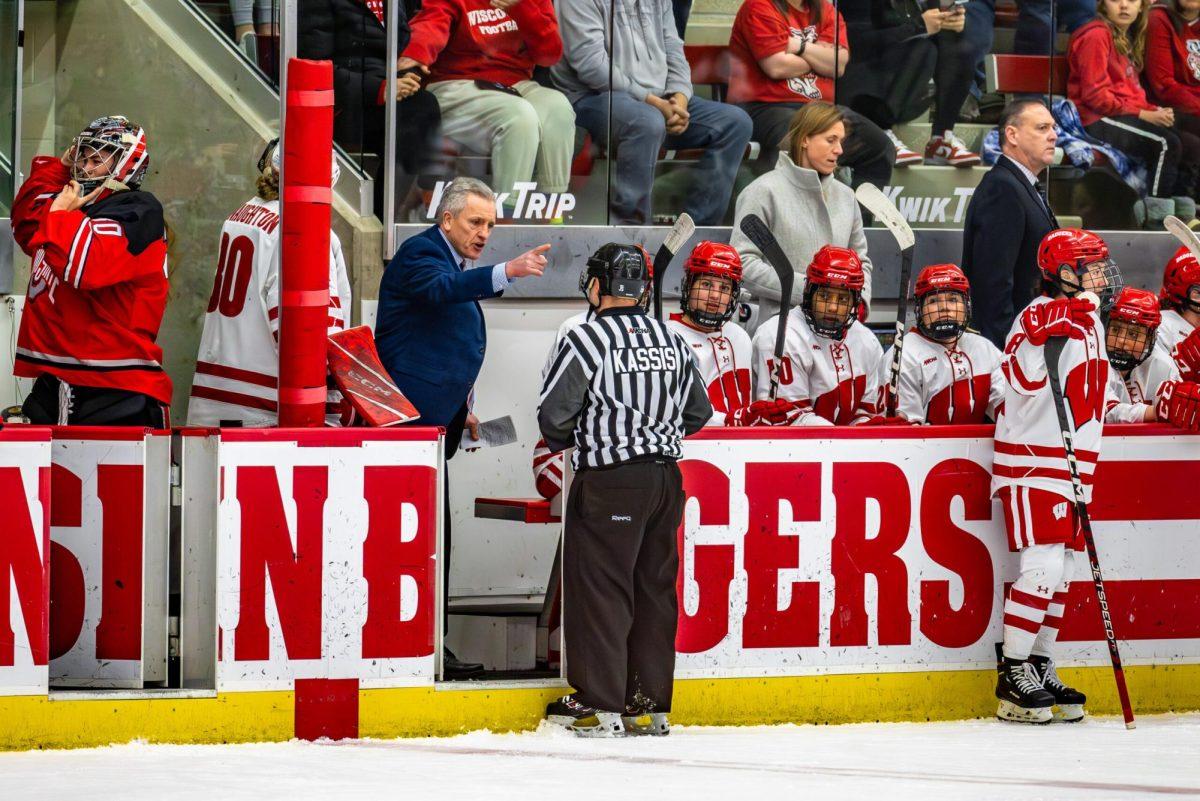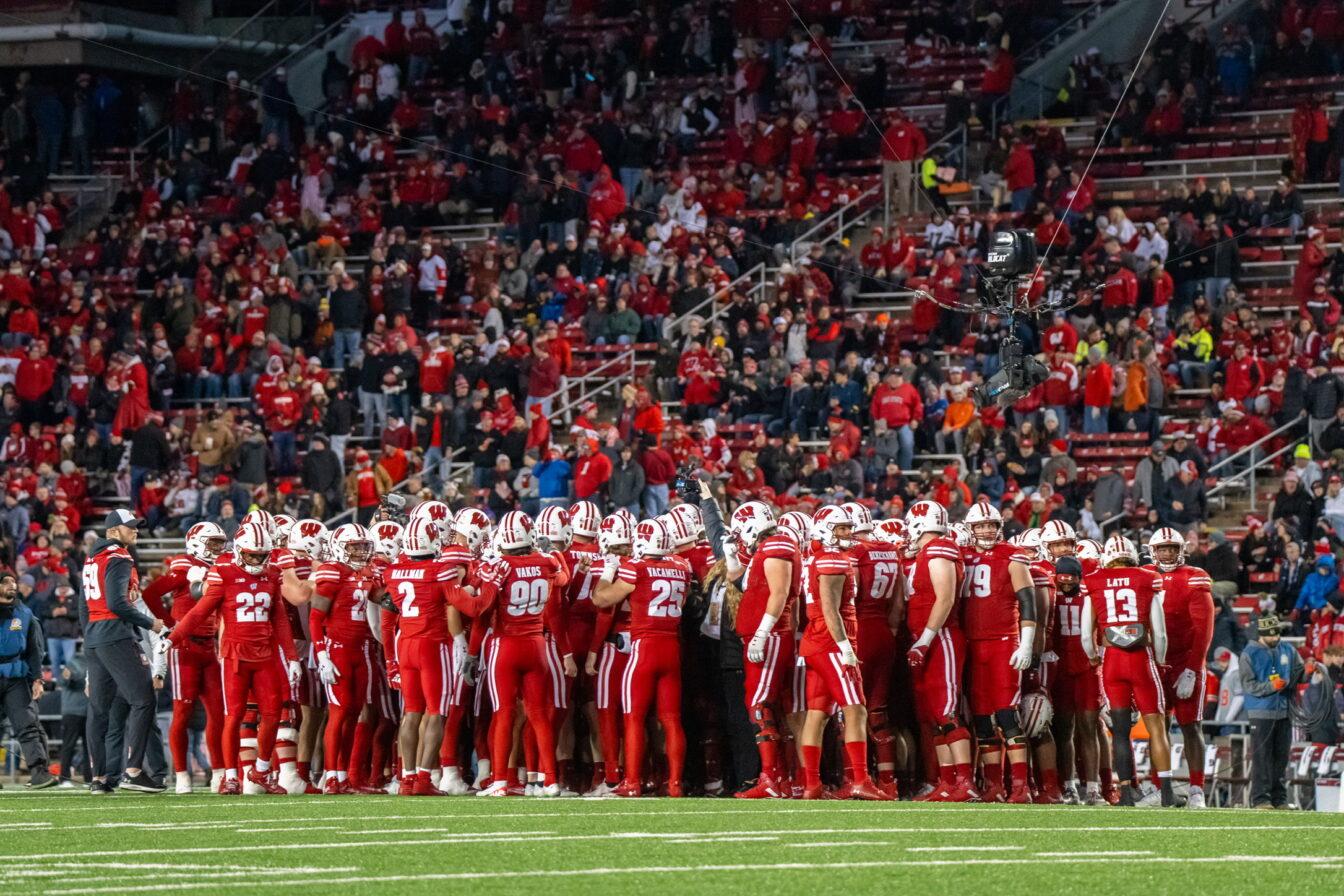Despite an eighth-place finish in the Big Ten last season, the 2003 Wisconsin Badger football team has been presented with the honors of a predicted third-place conference finish by the Big Ten media and a national preseason ranking of No. 20 in the ESPN/USA coaches poll. Such accolades may seem high for a team that went 2-6 in the conference last season, but the Badgers have 18 starters looking to build from their Alamo Bowl victory despite being a very young football team.
“I really made an emphasis after the bowl game that as young as that team was, I felt that a young team can make more strides than an older squad,” head coach Barry Alvarez said upon the start of training camp. “And so many true freshmen, redshirt freshmen that played, and played well, that I expected a huge jump physically by these guys. And when you do it individually, make that type of improvement, naturally you improve as a football team.”
Contributing to the buzz surrounding the 2003 Badgers is the scheduled return of All-American wide receiver Lee Evans to an already very experienced receiving corps. Evans broke the Big Ten record for receiving yards in 2001 before tearing his ACL in the 2002 spring game. Two surgeries and a lost season later, Evans joins Jonathan Orr, Darren Charles and Brandon Williams to create one of the best receiving groups in the conference, if not the nation.
“We probably have one of the deepest group of receivers that we have ever had, starting with the return of Lee Evans,” Alvarez said. “We expect him to be 100 percent by the start of the season. When you have one of the best football players in the country, let alone one of the best receivers, obviously he has quite an impact on the football team.”
Depth is also a luxury in the backfield, with the return of junior Anthony Davis and sophomore Dwayne Smith. Davis has put together back-to-back 1500-yard seasons and averaged 5.2 yards per carry last season to go along with 13 touchdowns. Smith became the No. 2 back behind Davis, running for 552 yards and six touchdowns, including a start against Illinois.
“[Davis] comes back much stronger and bigger than he has been,” Alvarez said. “I’ve been very impressed with Dwayne Smith. He had a very productive freshman year. I saw tremendous improvement from the end of the season through spring practice. I expect him to have a breakout year.”
Fifth-year senior quarterback Jim Sorgi takes the reins of the offense from the all-time winningest quarterback in school history, Brooks Bollinger. Sorgi had competed with oft-injured Bollinger for the past three seasons, starting five games and coming off the bench in 16 others. Sorgi has 2,247 passing yards and 16 touchdowns to his credit but is 0-5 as a starter, despite outplaying opponents such as Joey Harrington and Drew Breeze. More of a pocket passer than the quick-to-run Bollinger, Sorgi added 15 pounds of bulk over the offseason to add strength and durability.
“Nobody wants their first season (as a starter) to be their last,” Sorgi said. “But if I had to pick a team to play with for my last season, this would be it.”
Defensively, the Badgers lose only two starters and return a strong nucleus highlighted by a very experienced defensive line.
“We’ve got tremendous depth (on the line),” defensive end Darius Jones said. “We’ve got six people that can be starters; unfortunately only four of us can play. With our defensive schemes, we like to rotate the linemen in there a lot, so it’s just like you have six starters.”
Anttaj Hawthorne and Jason Jefferson developed into a very formidable pair in stuffing the run last season, while ends Jonathan Welsh, Erasmus James and Darius Jones combined for near-consistent pressure from the outside.
With the healthy return of middle linebacker Jeff Mack, the Badgers gain some consistency and genuine leadership in the middle. Mack missed most of the Big Ten season with a stinger suffered against Penn State, but he returned from a stellar game against Minnesota and was selected as the defensive MVP of the Alamo Bowl.
“You could tell a difference in our football team when Mack wasn’t there,” Alvarez said. “When he is in the lineup, we become a much more physical group and a group that plays with much more confidence because of his awareness.”
“We call him ‘The Grandfather,'” fellow linebacker Alex Lewis said. “[Mack] oversees everything. He’s the oldest on the team, and experience helps. He tells us what we’re doing wrong and what we need to do to get better.”
In the backfield, the Badgers return All-American safety Jim Leonhard, who led the nation in interceptions last season with 11. Leonhard and fellow backfield mate Ryan Aiello will flip-flop at the safety positions in 2003, in an effort to get Leonhard in a better position to utilize his skills as a ball hawk while putting the hard-tackling Aiello at strong safety.
“[Ryan and I] went through the whole year with both of as starting,” Leonhard said. “We might not have to communicate as much as with other people because we’ve seen it, and we know what teams are trying to do, and we feel real comfortable with each other.”
Scott Starks returns for his third season as a starting cornerback for the Badgers, while juniors Brett Bell and Chuckie Cowans will vie for the right cornerback spot vacated by the graduation of BJ Tucker.
“We’re feeling really good as a whole,” Leonhard said. “In spring ball we had a lot of guys step up. We’re not quite sure about what’s going on at the one corner position we need, but I’m confident with what we have that someone is going to step in and do a good job for us.”
With few exceptions, the 2003 Badger football team looks as deep and as talented as the Rose Bowl teams of the late ’90s. But with defending national champion Ohio State and conference powerhouse Michigan looking like BCS contenders, Alvarez and company have their work cut out for them if they want to make a run at the Big Ten title. A main point of inspiration and focus is to continue to show the hunger and drive the Badgers showed in the come-from-behind win over Colorado in the Alamo Bowl.
“There’s a fine line in there, being a good football team and getting over the hump and being a team that when it’s crunch time, and I use the term ‘don’t flinch,'” Alvarez said. “The good teams always just expect to win, and everybody on the field and on the sidelines expects to win, and they find a way to win … I am very pleased with the progress we’ve made. Young teams have the potential to improve more than veteran teams. They have more flexibility to get stronger and have a better feel for what it takes to be successful in the Big Ten … We just want to pick up where we left off a year ago.”














